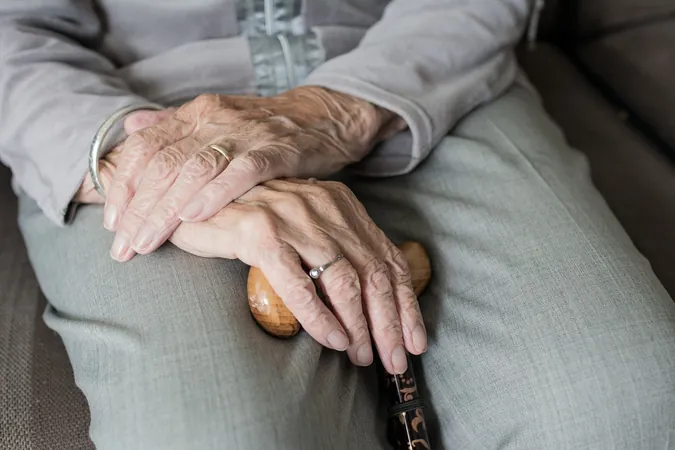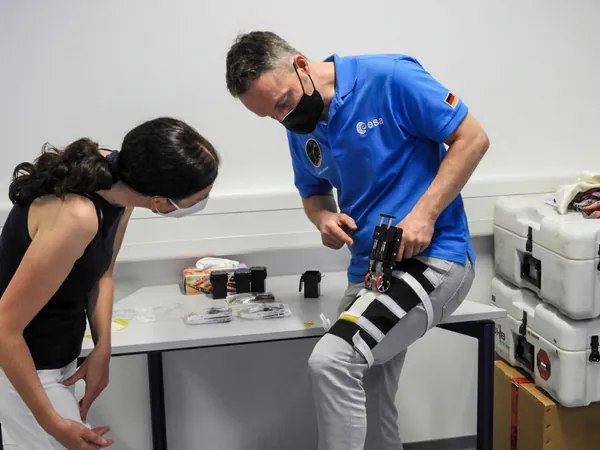
Shocking Study Reveals Social Isolation Increases Mortality Among Older Adults with COPD
2024-11-05
Author: Siti
Introduction
In a groundbreaking study by researchers from the University of California, San Francisco, and the University of Alabama at Birmingham, a disturbing link has been established between social isolation and heightened mortality rates in older adults suffering from chronic obstructive pulmonary disease (COPD). Published in JAMA Internal Medicine, this research sheds light on an often-overlooked dimension of health that could have dire consequences for the aging population.
The Impact of Social Isolation on Health
Social isolation, defined as having limited or no social contact, is already known to be detrimental to health outcomes, particularly among adults aged 65 and older. Alarmingly, about 20% of individuals with COPD face social isolation—double the rate of the general older adult population. This isolation can be attributed to the debilitating features of COPD such as breathlessness and reduced physical capabilities, making even routine social engagements overwhelmingly exhausting.
Study Overview and Findings
The research team examined mortality rates in a cohort study aptly titled "Social Isolation and Mortality in Adults With Chronic Obstructive Pulmonary Disease." By analyzing data from the Health and Retirement Survey spanning from 2006 to 2022, they focused on 1,241 community-dwelling adults aged 51 and older who reported having COPD. The study identified multiple factors contributing to social isolation, including being unmarried, living alone, lack of contact with family, and minimal community engagement. Each factor was rated on a scale from 0 to 6, with scores of 3 or higher reflecting significant social isolation.
Mortality Rates and Survival
Over a median follow-up period of 4.4 years, the findings were alarming: 43.4% of participants passed away, with a staggering 23.6% identified as socially isolated. These isolated individuals presented a 35% higher risk of death compared to their more socially engaged peers, even after accounting for various demographic and health-related factors such as education level and pre-existing conditions.
Comparison of Survival Rates
The median survival rate also took a hit—socially isolated participants had a survival time of just 7.0 years, compared to 9.1 years for those not isolated. Furthermore, the five-year survival rate was significantly lower at 62.9% for the isolated group, compared to 71.1% for the non-isolated counterparts.
Significance of the Findings
Interestingly, earlier research suggested a mere 2% absolute risk difference in five-year survival rates among the older adult population due to isolation. In stark contrast, this study revealed an astounding 8.3% difference within the COPD community, indicating that social isolation's impact on mortality is far more severe in COPD patients than in their non-COPD peers.
The Role of Support Systems
The researchers speculate that social isolation may exacerbate mortality risks by inhibiting participation in vital support systems necessary for managing COPD symptoms, particularly following hospitalizations. This critical support network is essential for recovery and ongoing disease management.
Call for Action
In light of the pervasive nature of social isolation among COPD patients, the study strongly advocates for interdisciplinary approaches aimed at mitigating this issue. Implementing initiatives such as group pulmonary rehabilitation, support groups, and community meal or exercise programs can improve the overall well-being and healthcare access for those affected by COPD.
Conclusion and Future Research
As the study pushes the boundaries of our understanding of COPD, it calls for future research to delve deeper into strategies designed to reduce social isolation and assess its potential for improving health outcomes. It’s a clarion call for action to not only treat the disease but to also address the social factors that could mean the difference between life and death for many seniors with COPD.
Spread the Awareness
Don't let this vital information go unnoticed—spread the word and help combat the hidden dangers of social isolation among older adults!




 Brasil (PT)
Brasil (PT)
 Canada (EN)
Canada (EN)
 Chile (ES)
Chile (ES)
 España (ES)
España (ES)
 France (FR)
France (FR)
 Hong Kong (EN)
Hong Kong (EN)
 Italia (IT)
Italia (IT)
 日本 (JA)
日本 (JA)
 Magyarország (HU)
Magyarország (HU)
 Norge (NO)
Norge (NO)
 Polska (PL)
Polska (PL)
 Schweiz (DE)
Schweiz (DE)
 Singapore (EN)
Singapore (EN)
 Sverige (SV)
Sverige (SV)
 Suomi (FI)
Suomi (FI)
 Türkiye (TR)
Türkiye (TR)